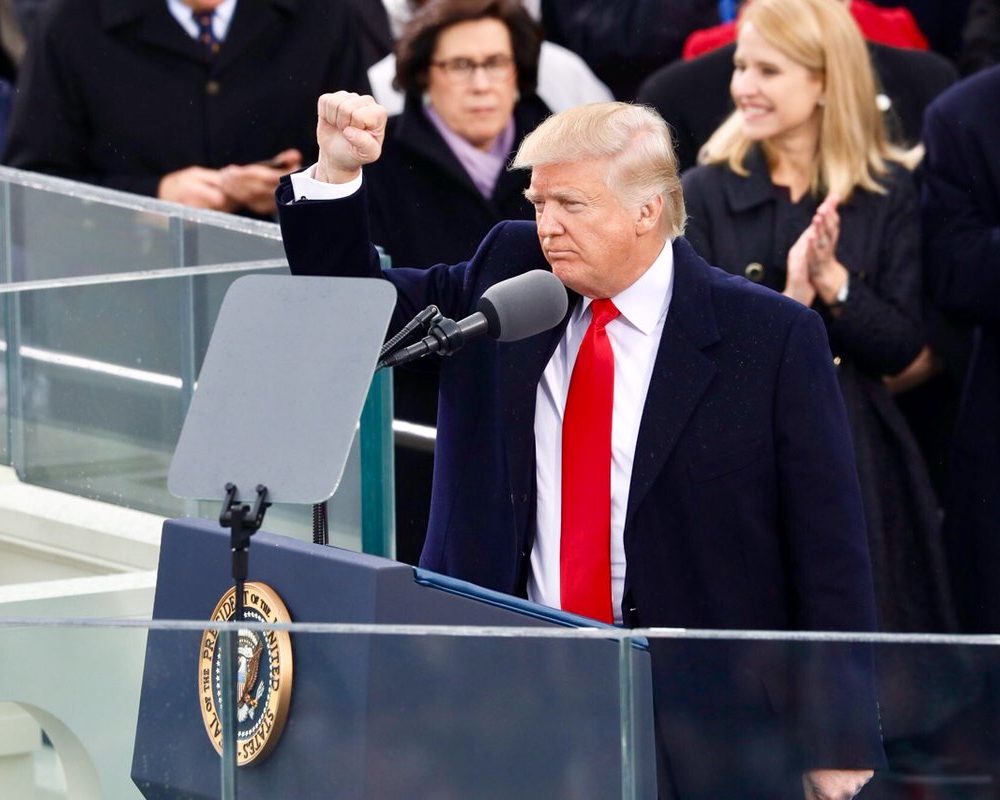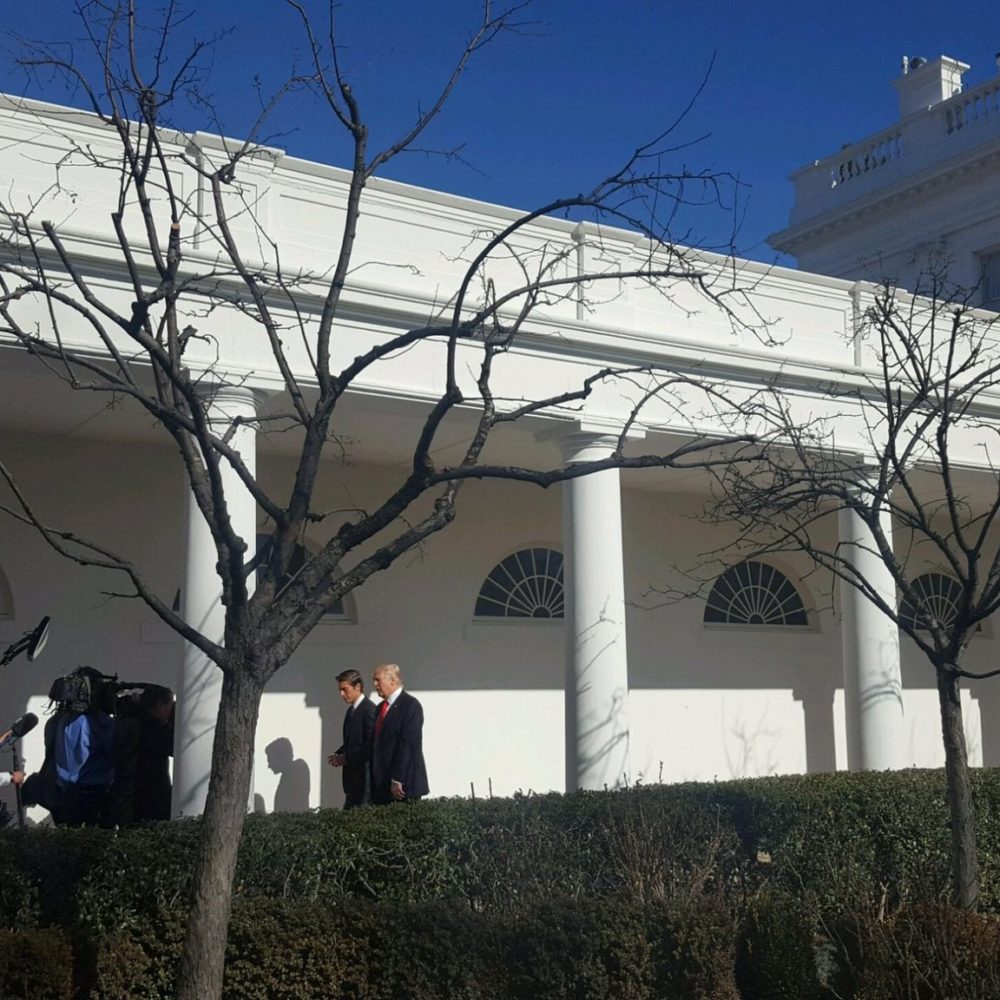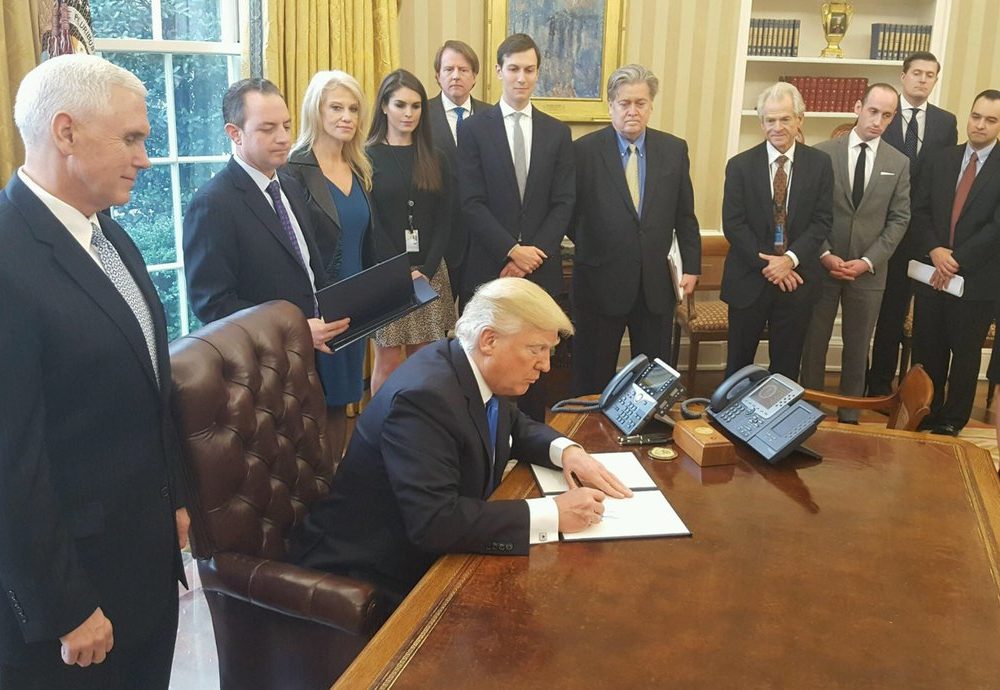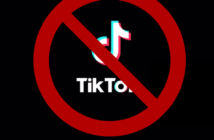By: Brian Cerosky
President Donald Trump, sworn on Jan. 20 as America’s 45th President, has already made some big changes to some controversial issues in his first week in office.
Often regarded as his more popular stance, Trump during his campaign trail often spoke very negatively of the Trans Pacific Partnership (TPP), which was meant to be a free trade agreement between North American nations and developing Asian countries. Its mission, according to the Office of United States Trade Representative website, is to “promote economic growth; support the creation and retention of jobs; enhance innovation, productivity and competitiveness; raise living standards; reduce poverty in the signatories’ countries; and promote transparency, good governance, and enhanced labor and environmental protections.”
The agreement was signed by all twelve member counties in early Feb. 2016, however, the treaty can no longer be ratified due to Trump’s executive order, signed on Jan. 23, which will effectively enable America to withdraw itself from the agreement. Trump stated many times that free trade agreements, like NAFTA, resulted in many jobs moving overseas and leaving America worse off than before.
Another major change from Trump was seen with the passage of two controversial bills vetoed by President Obama: the approval for construction of the Keystone XL pipeline as well as the Dakota Access Pipeline (DAP). Both proposals were protested against by environmental groups and the Standing Rock Sioux Tribe of Native Americans, as the DAP, in particular, trespasses on sacred tribal land. Pipelines have been reported to have leaked oil numerous times over the years, with the most recent one being a pipeline running through the state of Iowa on Jan. 25 of this year, leaking over 130,000 liters of oil into the surrounding landscape. However, President Trump and pipeline proponents alike cite economic benefits and the creation of supposedly thousands of jobs as being worth the potential risks to the environment.
In addition to approving the pipelines and no doubt angering environmental protesters in that regard, Trump also ordered the Environmental Protection Agency (EPA) to suspend all the grants the agency gives out to fund pollution monitoring, education, and environmental research in the country. In addition, Trump also ordered the Departments of Agriculture, Health and Human Services, and the Interior from talking to the press or updating their social media accounts.
President Trump also reinstated the Mexico City Policy, which prohibits the US from donating to any charity that which offers abortions or other contraception services overseas. Trump further broadened the measure by defunding the prevention of HIV/Aids as well as treatment for the disease, maternal and child health, nutrition, and domestic violence programs. The result of the initiative may lead to the death of more than 21,000 women worldwide, according to Mari Stopes International, which is a non-government organization that provides family planning services in mainly the United Kingdom but also in other countries around the globe. This measure is a part of Trump’s promise on the campaign trail to restrict access to abortions.
In stark contrast to the previous administration, Trump has made it clear from day one of his run for office that the media was biased and that much of it is dishonest. This became evident a few days after his inauguration, where Trump’s inauguration crowd was reported to have been much smaller than the one seen for President Obama in 2009 as side-by-side comparison photos were produced by multiple media outlets following inauguration day. Trump denies the evidence put forward by the media and had instead claimed that the crowds were up to 1.5 million, all gathered to see him sworn in as the 45th President.
This was exacerbated during the subsequent press conference when White House Press Secretary Sean Spicer denounced the media as false and it had been a largely successful and widely watched inauguration. Kellyanne Conway, advisor to President Trump, stated that Spicer was simply giving “alternate facts,” defending Spicer’s denial of the smaller crowds and suggesting that the media’s evidence is irrelevant.
Lastly, Trump committed to his long-time promise of building a wall on the Mexican-American border by issuing an executive order on Jan. 25 which intends to immediately begin its construction. Trump had promised that Mexico will “reimburse” America for the construction, which is cited as being in contrast to his earliest promise of making Mexico pay for it directly. It is assumed, then, that Trump will rely on taxpayer dollars to pay for construction, which will require the approval of Congress. It is estimated that the final construction costs may total upwards of $25 billion, according to Bernstein Research, a private Wall Street research and brokerage firm that tracks the costs of materials.
In addition to the wall, Trump also signed an action that will strip funding from cities that are “sanctuaries for undocumented immigrants.” The following day, President of Mexico Enrique Pena Nieto canceled his diplomatic summit with President Trump.
President Trump has a lot more left on his plate despite these changes and intends on tackling his campaign promises one at a time. Trump’s State of the Union address will be given early next year where by then it will be interesting to witness what Trump’s policies in his first year brought to America and what he has left to accomplish.








